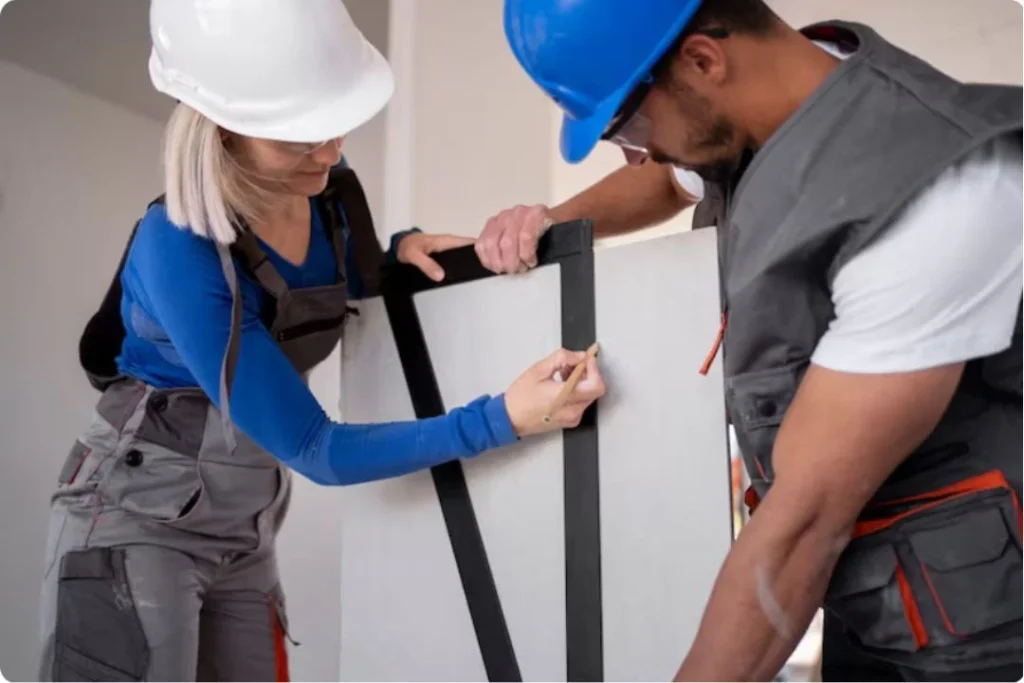R Tech Insulation – The Ultimate Guide for the USA Market
Introduction
In today’s fast-paced world, energy efficiency and sustainability are no longer optional—they are essential. Homeowners, builders, and businesses across the United States are constantly looking for ways to reduce energy costs, improve indoor comfort, and minimize environmental impact. One of the most effective ways to achieve these goals is through high-quality insulation. Among the many options available, R Tech Insulation has emerged as a top choice for those seeking durable, energy-efficient, and cost-effective insulation solutions.
R Tech Insulation is designed to provide superior thermal performance, helping maintain a consistent indoor temperature while reducing the workload on heating and cooling systems. In addition to energy savings, R Tech Insulation offers numerous benefits such as fire resistance, soundproofing, and longevity, making it an ideal investment for both residential and commercial projects.
The growing popularity of R Tech Insulation in the U.S. is not just a trend—it reflects a shift towards smarter, eco-friendly building practices. As energy prices rise and environmental awareness increases, R Tech Insulation provides a reliable solution that meets modern building standards and contributes to long-term cost savings.
This comprehensive guide will explore every aspect of R Tech Insulation: what it is, its benefits, types, applications, installation process, cost analysis, comparisons with other insulation materials, and more. By the end of this guide, readers will have all the information they need to make informed decisions about R Tech Insulation for their homes, businesses, or construction projects.
What is R Tech Insulation?
R Tech Insulation is a high-performance insulation material designed to improve energy efficiency and indoor comfort in buildings. Unlike traditional insulation options such as fiberglass or cellulose, R Tech uses advanced technology to provide higher thermal resistance, durability, and versatility in various applications.
The “R” in R Tech stands for resistance, specifically resistance to heat flow. This resistance is measured using an R-value, a standard unit that indicates the material’s ability to resist heat transfer. The higher the R-value, the better the insulation. R Tech Insulation is engineered to offer high R-values, ensuring that homes and buildings remain warm during winters and cool during summers—ideal for the diverse climates across the United States.
Types of R Tech Insulation
R Tech offers a range of insulation products tailored for different construction needs:
R Tech Thermal Boards
- Rigid foam panels that provide excellent thermal resistance.
- Commonly used in walls, roofs, and floors.
- Easy to cut and install, making it suitable for both new constructions and retrofits.
R Tech Reflective Insulation
- Uses reflective surfaces to redirect heat away from living spaces.
- Particularly effective in attics and roof spaces.
- Helps reduce cooling costs in hot climates.
Why R Tech Insulation is Different
Several factors make R Tech stand out from traditional insulation materials:
- Higher Energy Efficiency: R Tech provides excellent thermal resistance, helping homes and businesses maintain consistent indoor temperatures.
- Durability: Resistant to moisture, mold, and pests, ensuring long-term performance.
- Versatility: Suitable for residential, commercial, and industrial applications.
- Eco-Friendly: Many R Tech products are made with sustainable materials and contribute to reduced carbon footprints.
In short, R Tech Insulation is not just another insulation product—it’s a complete solution for modern construction needs in the U.S., combining efficiency, durability, and environmental responsibility.
History and Development of R Tech Insulation
Understanding the history of R Tech Insulation helps appreciate how it became a trusted solution for energy efficiency and modern building practices in the United States. Insulation, in general, has been used for centuries to maintain indoor comfort, but the materials and technology have evolved dramatically over time. R Tech Insulation represents the cutting edge of this evolution.
Origins of R Tech Insulation Technology
R Tech Insulation emerged from innovations in foam-based and reflective insulation technologies. Early insulation materials included natural fibers, wool, and even straw, which were used in homes to reduce heat loss. Over time, the construction industry transitioned to synthetic materials such as fiberglass and foam, which offered higher R-values, durability, and ease of installation.
R Tech was developed to address the limitations of these traditional materials. While fiberglass insulation could trap air effectively, it was susceptible to moisture damage and compression, which reduced its efficiency over time. R Tech introduced a multi-layered approach, combining thermal resistance, moisture protection, and reflective surfaces, creating a more robust solution for modern construction needs.
Adoption in the United States
The United States has a diverse climate, ranging from extremely cold regions in Alaska and the Midwest to hot, humid areas in the South. This diversity requires insulation solutions that perform well across different temperatures and humidity levels. R Tech Insulation quickly gained attention in the U.S. for its ability to:
- Maintain consistent R-values even in extreme temperatures.
- Provide fire resistance, a critical requirement in U.S. building codes.
- Offer moisture and mold resistance, especially important in areas prone to humidity or flooding.
During the early 2000s, energy efficiency became a major priority in the U.S., driven by rising energy costs, environmental concerns, and government regulations. R Tech Insulation aligned perfectly with this trend, offering a high-performance solution that reduced energy consumption and contributed to sustainable building practices.
Technological Advancements Over the Years
Since its inception, R Tech Insulation has evolved significantly:
Enhanced Foam Technology
- Modern R Tech foam insulation provides higher R-values per inch than traditional materials.
- Closed-cell foam variations offer improved moisture resistance and structural support.
- Reflective Surface Integration
- The addition of reflective layers helps redirect radiant heat, especially in attic and roof applications.
- This innovation has been particularly beneficial in hot climates across the southern U.S.Eco-Friendly Manufacturing
- Many R Tech products are now manufactured using recycled or sustainable materials.
- Production processes aim to minimize greenhouse gas emissions, aligning with green building initiatives such as LEED certification.
- Customization and Versatility
- R Tech now offers products in various thicknesses, densities, and formats, making it suitable for residential, commercial, and industrial projects.
- Contractors can choose products based on specific climate requirements or building types.
Tech in Modern U.S. Construction

Today, R Tech Insulation is widely recognized in the U.S. construction industry. It is used in new home construction, commercial buildings, renovations, and even industrial facilities. Its reputation is built on performance consistency, regulatory compliance, and long-term energy savings.
Architects, builders, and homeowners increasingly prefer R Tech because it allows them to meet stringent energy codes, improve indoor comfort, and achieve sustainability goals—all without compromising on durability or fire safety.
Benefits of R Tech Insulation
Choosing the right insulation is a critical decision for homeowners, builders, and businesses in the United States. R Tech Insulation stands out due to its superior performance, durability, and versatility. In this section, we’ll explore the key benefits that make R Tech a leading choice for residential, commercial, and industrial applications.
Exceptional Energy Efficiency
Energy efficiency is one of the primary reasons R Tech Insulation is so popular in the U.S. With rising energy costs and increasing demand for sustainable buildings, insulation that reduces heat transfer is essential.
- Higher R-values: R Tech Insulation offers higher R-values per inch compared to traditional materials like fiberglass or cellulose. This means it resists heat flow more effectively, keeping homes warmer in winter and cooler in summer.
- Reduced HVAC Load: By maintaining consistent indoor temperatures, R Tech reduces the workload on heating, ventilation, and air conditioning (HVAC) systems, which lowers energy consumption and extends the life of HVAC equipment.
- Energy Savings: Studies show that properly installed R Tech Insulation can reduce heating and cooling bills by 20–40% depending on the climate and building type, translating to significant savings over time.
Cost-Effective Solution
Although the upfront cost of R Tech Insulation may be slightly higher than some traditional options, the long-term benefits make it highly cost-effective.
- Long-Term ROI: Reduced energy bills, lower maintenance costs, and increased property value contribute to a strong return on investment.
- Durability: R Tech’s resistance to moisture, mold, and pests minimizes repair and replacement costs over the years.
- Versatility: Its application in walls, roofs, floors, and attics eliminates the need for multiple insulation products, reducing labor and material costs.
Fire Resistance and Safety
Safety is a critical concern in U.S. construction, and R Tech Insulation excels in this area.
- Fire-Resistant Materials: Many R Tech products are manufactured to meet or exceed U.S. fire safety standards, reducing the risk of fire-related damage.
- Non-Toxic Composition: R Tech Insulation is often designed to be low in volatile organic compounds (VOCs), promoting healthier indoor air quality.
- Peace of Mind: Homeowners and businesses can rely on R Tech to enhance building safety without sacrificing performance.
Superior Soundproofing
Noise pollution is a common problem in urban and suburban areas. R Tech Insulation offers excellent soundproofing capabilities:
- Noise Reduction: Its dense foam and layered design absorb sound, reducing noise from traffic, neighbors, and industrial equipment.
- Comfortable Living Spaces: Improved acoustics create a quieter, more comfortable indoor environment for families and employees.
- Commercial Advantage: Businesses benefit from reduced noise in offices, conference rooms, and public spaces, improving productivity and customer experience.
Moisture and Mold Resistance
Moisture can compromise traditional insulation materials, leading to mold growth, structural damage, and indoor air quality issues. R Tech Insulation addresses this problem effectively:
- Moisture Barrier: Closed-cell foam and reflective layers prevent water absorption, keeping walls, roofs, and floors dry.
- Mold Prevention: Reduced moisture levels inhibit mold growth, which is particularly important in humid regions of the U.S., such as the Southeast and Gulf Coast.
- Durability: By resisting moisture damage, R Tech maintains its insulating properties over decades.
Environmental Sustainability
Sustainability is increasingly important in U.S. construction, and R Tech Insulation contributes to green building practices:
- Reduced Energy Consumption: Lower heating and cooling demands decrease greenhouse gas emissions.
- Eco-Friendly Materials: Many R Tech products are made from recycled or environmentally safe materials.
- LEED Certification Support: Using R Tech can help buildings qualify for green certifications such as LEED, boosting property value and marketability.
Climate Adaptability
The United States experiences a wide range of climates—from the frigid winters of the Midwest and Northeast to the hot, humid summers of the South. R Tech Insulation is highly adaptable to these variations:
- Cold Climates: High R-values retain heat effectively in colder regions.
- Hot Climates: Reflective surfaces and foam layers reduce heat transfer, keeping interiors cool and reducing air conditioning costs.
- Extreme Weather Resistance: R Tech’s durability ensures performance even in areas prone to storms, humidity, or heavy snowfall.
Increased Property Value
Investing in high-quality insulation like R Tech can increase the resale value of homes and commercial properties. Buyers are increasingly looking for:
- Energy-efficient and eco-friendly features.
- Reduced utility bills.
- Durable, low-maintenance building materials.
By choosing R Tech Insulation, property owners not only save money on energy costs but also enhance the marketability of their properties in the competitive U.S. real estate market.
Conclusion of Benefits Section
R Tech Insulation offers a comprehensive solution for modern building challenges in the United States. Its benefits go far beyond traditional insulation:
- Energy efficiency and cost savings.
- Fire resistance and safety.
- Superior soundproofing.
- Moisture and mold protection.
- Environmental sustainability.
- Adaptability to diverse U.S. climates.
- Long-term property value enhancement.
With these advantages, R Tech Insulation has become a trusted choice for homeowners, builders, and businesses seeking reliable, high-performance insulation solutions.
Frequently Asked Questions (FAQs) about R Tech Insulation
How long does R Tech Insulation last?
R Tech Insulation is designed for long-term durability. With proper installation, it can last 25–50 years or more without significant loss in performance. Its resistance to moisture, mold, and pests ensures it maintains its thermal efficiency over decades.
Is R Tech Insulation safe for children and pets?
Yes. Most R Tech products are made with non-toxic materials and are low in volatile organic compounds (VOCs), making them safe for indoor environments. Proper installation ensures that the insulation remains securely in place and does not pose any health hazards.
Can R Tech Insulation be used in all climates in the U.S.?
Absolutely. R Tech Insulation is suitable for both cold and hot climates. Its high R-values retain heat in northern states, while reflective layers reduce heat transfer in southern, warmer regions. It is also effective in areas with high humidity or extreme weather conditions.
Can I install R Tech Insulation myself, or should I hire a professional?
While some R Tech products, such as rigid foam boards, can be installed by experienced DIYers, professional installation is recommended for spray foam and complex applications. Professionals ensure proper sealing, optimal R-value performance, and compliance with building codes.
How does R Tech Insulation compare to fiberglass or cellulose insulation?

R Tech offers higher R-values, better moisture resistance, and longer durability than traditional fiberglass or cellulose insulation. It also provides superior fire resistance and soundproofing, making it a more comprehensive and long-lasting solution for homes and businesses.
Conclusion
R Tech Insulation has established itself as a premium insulation solution for the U.S. market, offering unmatched energy efficiency, durability, and versatility. Whether you are a homeowner aiming to reduce energy bills, a builder seeking reliable materials, or a business focused on sustainability, R Tech delivers measurable benefits.
From high thermal resistance and moisture protection to fire safety and eco-friendly properties, R Tech Insulation addresses the modern demands of construction and energy-conscious living. Its adaptability to diverse climates across the United States ensures consistent performance, making it a wise long-term investment.
By choosing R Tech Insulation, you are not only enhancing comfort and energy efficiency but also contributing to sustainable building practices and increased property value. For anyone looking to upgrade their insulation solution, R Tech provides a trusted, high-performance, and environmentally responsible choice.
